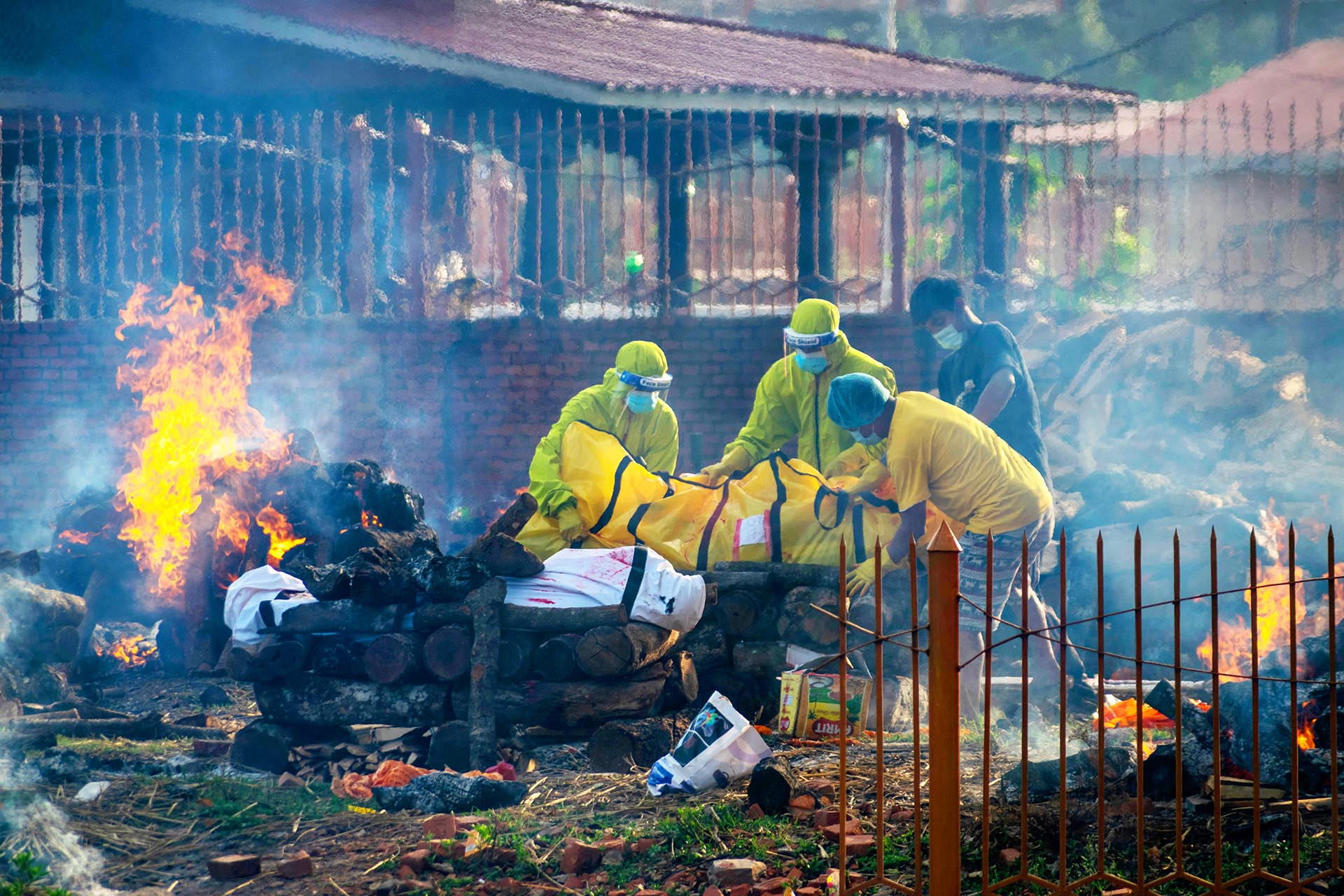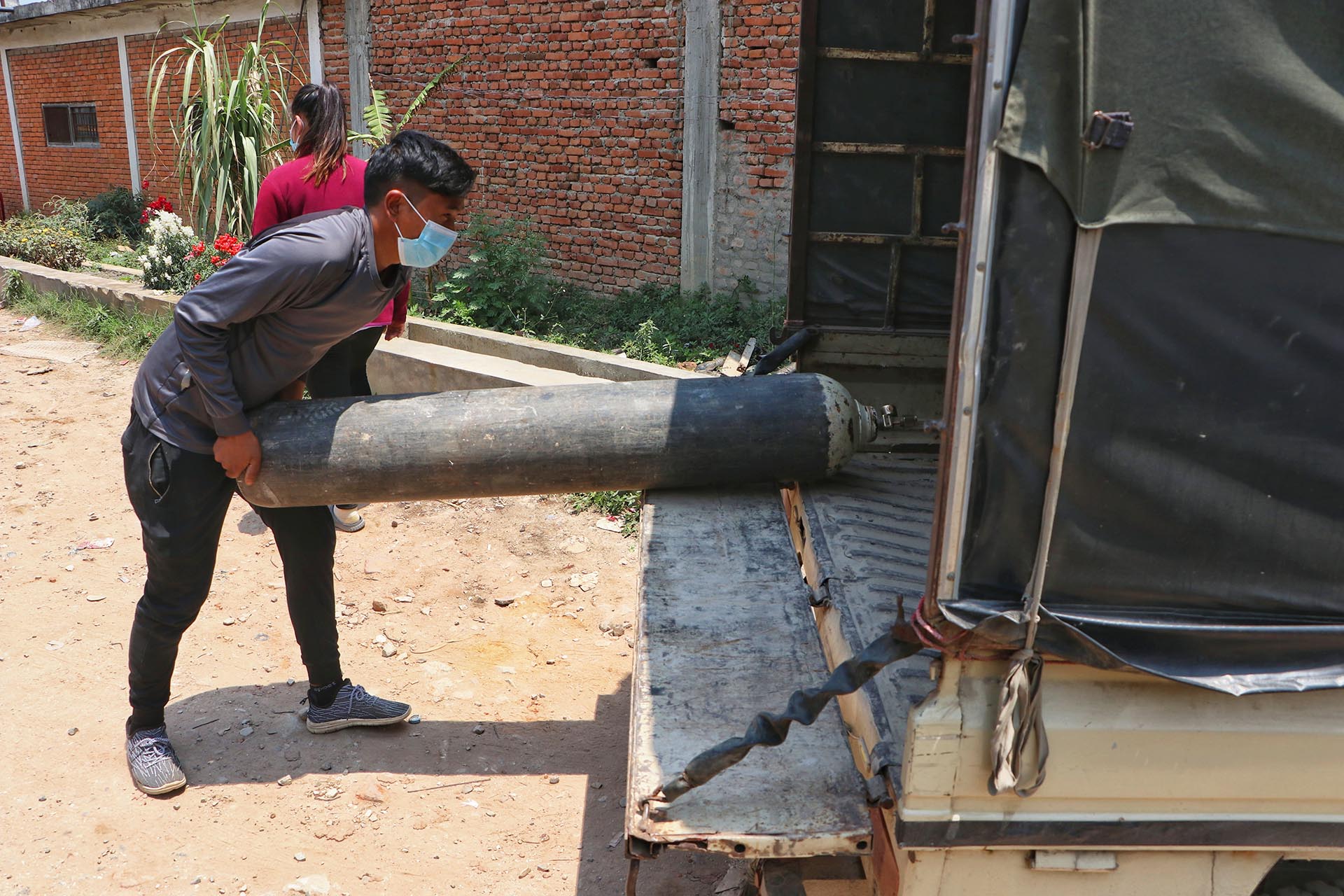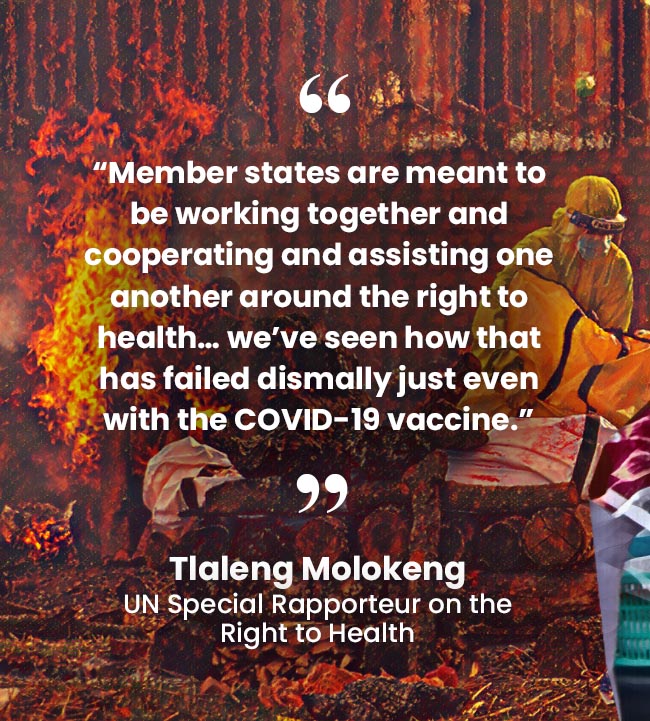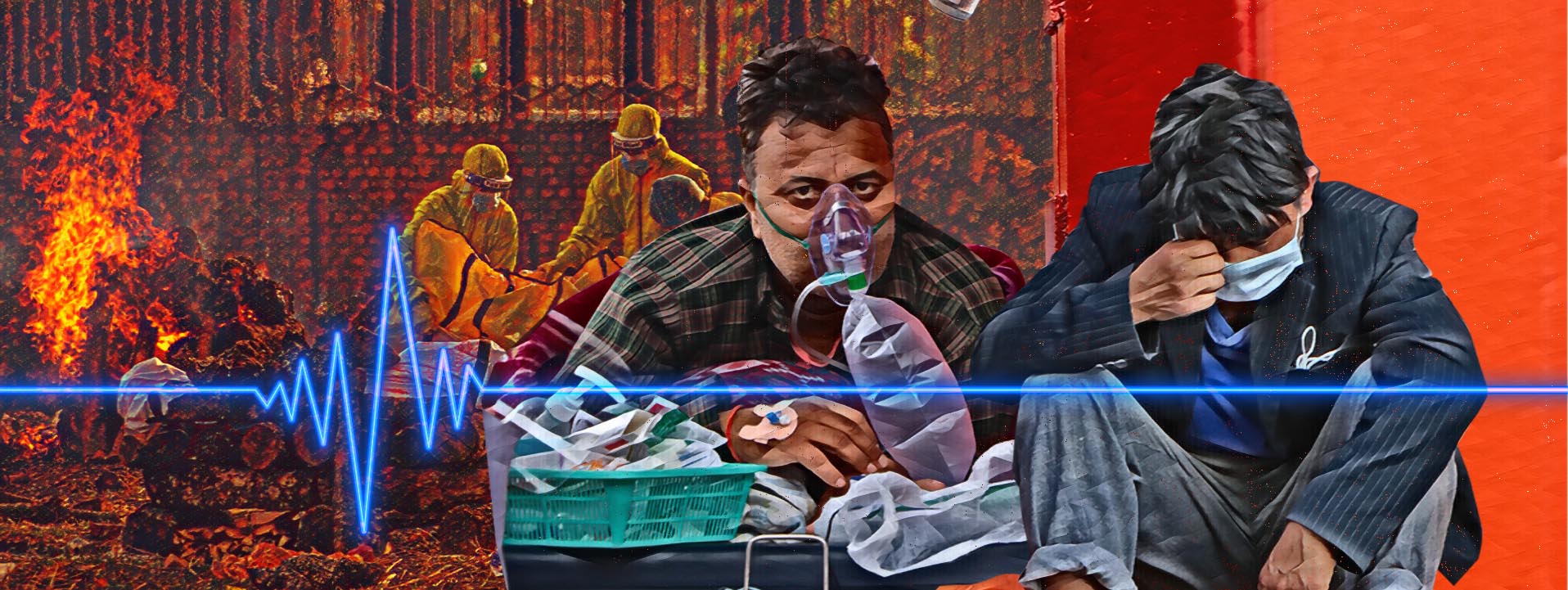On May 3, Lok Bahadur Pariyar, 45, arrived at his local pharmacy in southern Nepal complaining of breathing difficulties. He told the pharmacist that he had been suffering from fever, severe body aches, and cold symptoms in recent days.
Suspecting COVID-19, the pharmacist called an ambulance to take Pariyar to the hospital. The next day, when the pharmacist opened his shop, he was surprised to see the man standing outside. He told him he had visited three hospitals the day before and all had turned him away.
Pariyar sat down to catch his breath, and died soon after.
As of November 2020, Nepal’s Supreme Court had issued roughly 40 orders to the government related to the right to health and other fundamental rights. But today in Nepal, as in neighbouring countries, a growing number of people are dying of lack of healthcare.
Such court decisions raise the question of whether the human rights system is working as it should during the pandemic in countries like Nepal, which has just started its second term as a member of the United Nations Human Rights Council.
“It’s good that the right to health is in our constitution but we are not getting it,” says Subodh Sah, the pharmacist who last saw Pariyar alive. “Some might get it, but not everyone is getting it.”
“If people fall sick in the villages, they just take a couple of de-cold (over-the-counter cold medication). They only seek medical help if they are really serious. The doctors also treat them inhumanely,” he says via telephone from his shop in Dhanusha District, about 15 km from Janakpur, the town where the ambulance took Pariyar.
During the pandemic, Sah continues, “if you go to the hospital, they don’t touch you, they don’t even check your blood pressure. They keep you outside of a window, ask you if you have a headache, if you have fever, then they will prescribe a medicine for you. This is not the way to give someone 100 percent treatment.”

Amid the new outbreak in Nepal, necrological services have struggled to keep up with the growing pile of dead bodies. All across the country, crematoria have had to erect funeral pyres on whatever space is available.
‘A partial response is not good enough’
On May 10, lawyers Shailendra Ambedkar and Mohna Ansari filed a writ petition at Nepal’s Supreme Court, asking the government to act on the shortage of oxygen and other supplies, especially in districts near the country’s border with India.
At the time, a second wave of COVID-19 infections was imminent, with daily cases growing from 150 daily in April to over 8,000 at the peak in May. Even people who had the connections and/or cash for medical supplies were left in parking lots of jam-packed hospitals, attached to oxygen cylinders; more spaces had to be arranged for funeral pyres at cremation grounds.
On May 10, the Supreme Court ordered the government to take action, and it did, says Ambedkar. It released funds so hospitals could buy oxygen, supplies, and medicines, and so they could hire more doctors. “The government acted on parts of the order, but not all of it,” adds the lawyer in a Zoom interview.
A partial response is not good enough, says Mandira Sharma, senior international legal adviser for the human rights non-profit International Commission of Jurists. “The government needs to show that it’s acting on all the recommendations, and if it can’t take specific actions because of lack of resources, it must at least show that it is making serious plans.”
“The important thing is to have the political will and to show they have made genuine efforts to fulfil the right to health,” adds Sharma in a telephone interview. “It’s not enough to say, ‘I don’t have resources’… more than resources, what we need is management of resources.”
In November 2020, Sharma and colleague Karuna Parajuli published a briefing paper on the right to health in Nepal during COVID-19. In it, they detail the “slow responses of the Government in taking preventative measures; the lack of rapid testing; the low quality of testing kits; the excessive use of force by security forces to impose lockdowns; the lack of preparedness in preventing the spread of virus in prison and detention facilities; and the lack of easy access to hospital for pregnant women.”
The paper also argues that under international law, Nepal must respond to the pandemic immediately and “take steps towards realizing the right to health in full” as well as “avoid any retrogressive steps decreasing existing access to health.”
In addition, the authors of the briefing paper point to Nepal’s need to “ensure that health services, facilities and goods are available to all without discrimination” and “ensure access to at very least the ‘minimum essential level’ of health services, facilities, and goods.”
According to Tlaleng Molokeng, UN Special Rapporteur on the Right to Health, “many, many countries, be they developing or developed countries, have not really done well (during COVID-19), but we don’t have an accountability or monitoring framework around the right to health so we rely on government reports or civil society to tell us what is going on.”
“The assumption is that member states are doing the right thing – they were doing the right thing before COVID-19; and during COVID-19 itself they are just holding themselves to a standard that was already predetermined,” she adds, “but the truth is that we know that there are countries where the progressive realization of rights is still lagging behind.”

As case counts continue to climb, oxygen has quickly become a prized commodity in Nepal, and families of patients scramble to get their cylinders refilled. The country is now experiencing a critical shortage of oxygen and other medical supplies, something activists are pressing the government to act on.
Hold the State accountable
Sharma, of the International Commission of Jurists, believes that the international community can play a strong role in holding the Nepalese government accountable to their commitments.
First, it can use human rights mechanisms, such as the Human Rights Council (HRC), to which Nepal won re-election last December. “We were really surprised to see Nepal re-elected to the Human Rights Council,” says Sharma. “The international community needs to raise questions to challenge, or at least make a country accountable, when they aspire to be part of mechanisms like the HRC.”
Second, states can jointly approach a government and work with it to fulfil its human rights commitments. “They could really raise issues with the government. They could do it in a systematic way, again and again,” suggests Sharma, who is also a former executive director of Advocacy Forum, a well-known human rights organization in Nepal.
But Molokeng believes that because of COVID-19, it might now be more difficult for states to hold their peers accountable. “Member states are meant to be working together and cooperating and assisting one another around the right to health… we’ve seen how that has failed dismally just even with the COVID-19 vaccine.”
“The assumption is that member states are going to be able, as they assist each other, to be honest and transparent, because accountability requires some level of transparency,” she says, “but if we’ve seen richer countries already not cooperating and assisting as they should, hoarding vaccines, how will they be the ones to hold other member states like Nepal accountable?”
Both Sharma and lawyer Ambedkar are considering further actions to press the government to uphold its obligations. Sharma argues that it should be possible to determine criminal responsibility for actions that violate the right to life, such as for directors of the hospitals that refused to treat Pariyar. “That would mean that there would be accountability in practice, not just in theory,” she says.
Ambedkar says he is planning to file another petition at the Supreme Court, this time to demand compensation from the government for deaths that occurred because of lack of medical services. “If people have died because of the lack of oxygen and other treatment, that is not a death, that is a murder – the government has committed murder.”
UN expert Molokeng notes, “Everyone has a right to seek justice in the manner that they see fit, and I’m glad that in Nepal these rights are supported and protected… that’s another way of people on the ground seeking accountability.”
She also points out that people can submit complaints about past, ongoing, or potential rights violations to experts like her and her colleagues. “Previously, special rapporteurs have enjoined strategic human rights cases as amicus curiae or friend of the court – you are not taking any particular side but your [role] is to bring to the court a human rights perspective and give the court information to assist them to make judgements that are in line with international human rights law and standards.”
Back in Dhanusha District, Pariyar’s widow has no expectations for any sort of assistance. “I really don’t know what to say to the government,” says Muna Pariyar.
“I lost my husband, brother, and my son (the latter two before COVID-19),” she says. “I even have my brother’s kids living with me. What will getting angry at the government get me? What will they do? I have to get on with my life and look after these kids.” ●
Marty Logan is a Kathmandu-based writer, editor, and host of the podcast, Nepal Now.



















